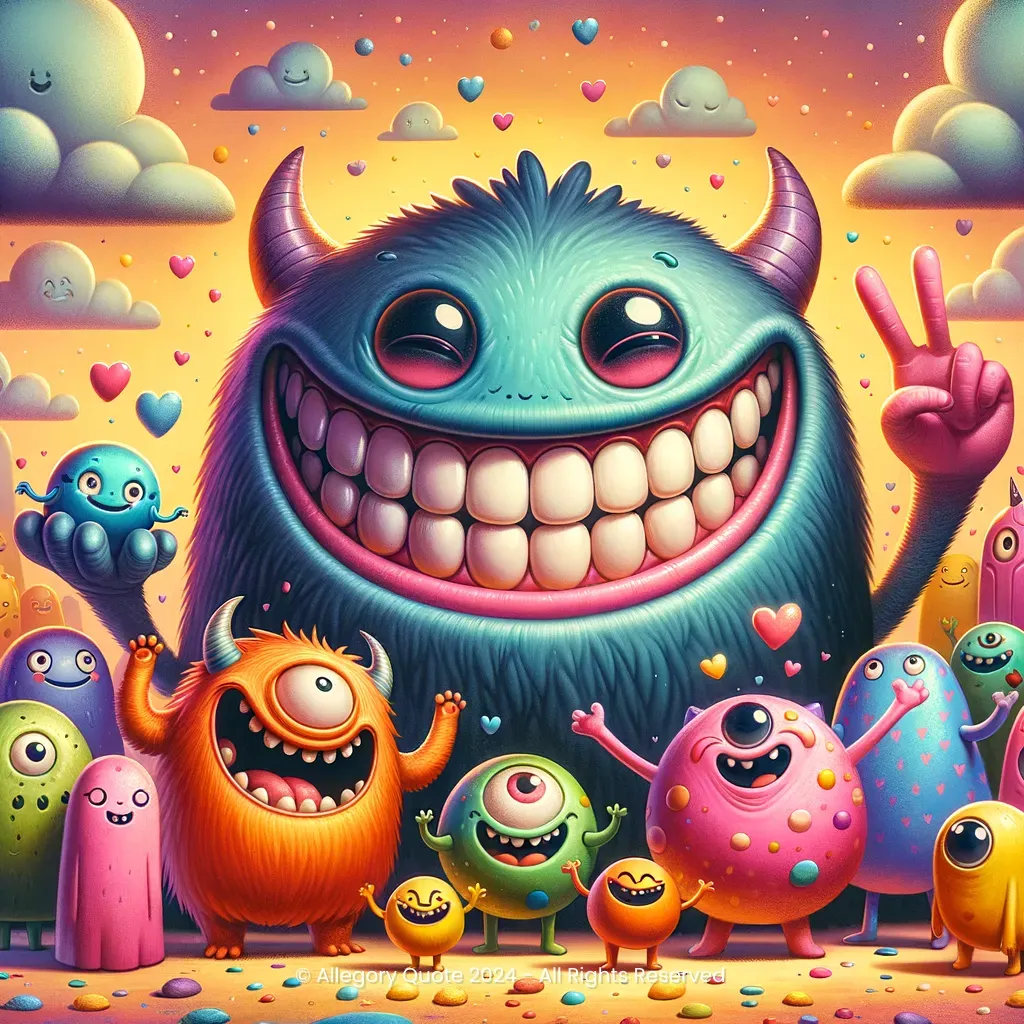We scare because we care

0
0
0
0
- Meaning
- Philosophically, this phrase can be interpreted as a commentary on the relationship between fear and empathy. It conveys the idea that those who are perceived as frightening may actually be motivated by a desire to protect or provide for others. Psychologically, it suggests that fear can exist alongside care, highlighting the complexity of human emotions. Historically, this phrase resonates with themes of misunderstanding and the hidden motivations behind our actions, encouraging viewers to look beyond the surface.
- Allegory
- The image features a playful monster that embodies the juxtaposition between fear and care, illustrating that outward appearances can be deceptive. Bright colors symbolize positivity and warmth, while elements like hearts emphasize the underlying love present in the phrase. The whimsical setting draws attention to the fun aspect of emotions, encouraging viewers to rethink their perspectives on fear and relationships.
- Applicability
- In personal life, the principle behind this phrase can be applied by acknowledging that sometimes people express their concerns through fear or strictness. It encourages patience and understanding toward others' actions, recognizing that behind assertiveness or fear might lie a desire to protect or care. This notion can foster deeper connections and stronger relationships by encouraging empathy.
- Impact
- The phrase has resonated with audiences and has become a memorable quote from 'Monsters, Inc.'. It reflects an animated film's thoughtfulness about emotions and fear that has led to discussions on understanding emotional expression, especially in children. The phrase often surfaces in conversations about empathy and perception of fear.
- Historical Context
- The phrase was popularized with the release of 'Monsters, Inc.' in 2001. The historical context of its origin ties to the growing recognition of emotional depth in animated films and how they depict complex themes in a child-friendly manner.
- Criticisms
- There is some criticism that the phrase oversimplifies the nuances of fear and care, suggesting that just because someone scares does not inherently mean that they care. Critics argue that it may propagate a misunderstanding about the motivations for fearful behavior, especially in unsafe or harmful contexts. This sets up a discussion about differentiating between healthy and unhealthy expressions of emotions.
- Variations
- Variations of this phrase exist in other cultures, often relating to the idea that parental discipline or strictness stems from care. For instance, in various traditions, parents may instill fear to protect their children from harm, reflecting a global theme where fear is tied to love and care, though interpretations may differ based on cultural context.
-

You don’t need a cape to be a hero.
-

The problem is not the problem. The problem is your attitude about the problem.
-

You never forget kids like Emily, or Andy, but they forget you.
-

Sometimes, the smallest things take up the most room in your heart.
-

Anyone can cook, but only the fearless can be great.
-

For the strength of the Pack is the Wolf, and the strength of the Wolf is the Pack.
-

Peace cannot be kept by force; it can only be achieved by understanding.
-

It’s called love. It’s why we do it.
-

There are no accidents.
-

The only limit is your soul.
-

This is my family. I found it, all on my own. It’s little and broken, but still good. Yeah, still good.
No Comments